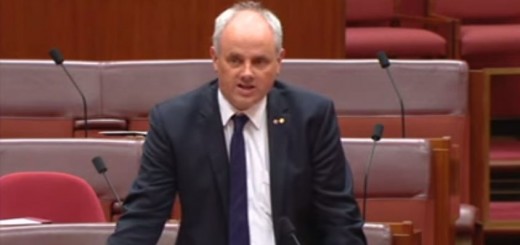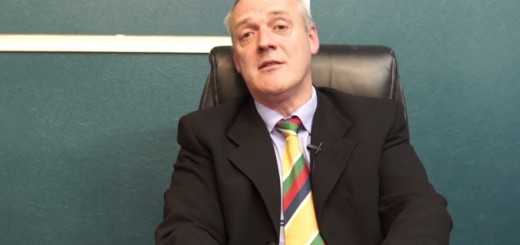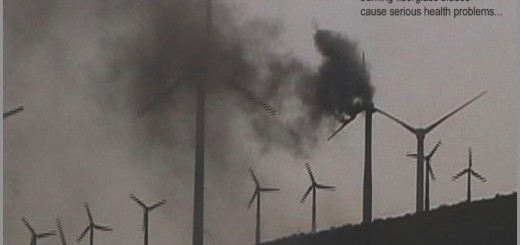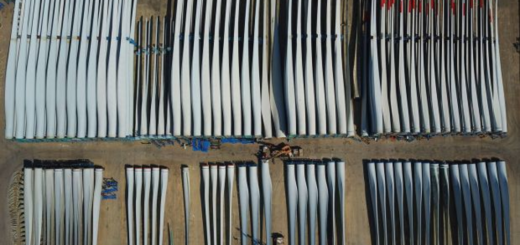The wind industry is just the latest and largest in a long line of great Ponzi schemes, like the South-Sea Bubble and Dutch tulip mania.
In the wind industry, the scam is all about pitching bogus projected returns (based on overblown wind “forecasts”) (see our posts here and here and here and here); claiming that wind turbines will run for 25 years, without the need for so much as an oil change (see our posts here and here and here); and telling investors that massive government mandated subsidy schemes will outlast religion (see our posts here and here and here).
The story is the same, the world over: wind power doesn’t run on wind, it runs on subsidies. The merest threat to which has the wind industry, its parasites and spruikers howling ‘blue murder’.
But, for as long as governments are prepared to squander billions of dollars of other people’s money – and/or to mandate fines, targets and penalties on those attempting to provide reliable and affordable power – there will be a disorderly queue of rent-seeking RE scammers ready to take suckers for all they’re worth. Never mind that what’s on offer is a complete fantasy.
In short, as David Wojick points out, if it’s too good to be true, then it probably is.
Colorado energy company Xcel goes crazy green
WattsUpWithThat?
David Wojick, PhD
14 December 2018
One starts to suspect there is a lot of hype, and maybe securities fraud, going on here
Awhile back, I wrote an article about how the radical Colorado Energy Plan is actually designed to serve the gigantic Colorado utility company Xcel – not Colorado families and businesses – by beefing up Xcel’s asset base … and bottom line … with $2.5 billion worth of new generating capacity.
The kicker is that the Plan substitutes expensive, unreliable wind power for affordable, reliable coal-generated electricity, and thus is really part of a clever corporate strategy designed by Xcel.
Xcel’s plan was to get past 50% renewable. But now it has doubled down on that. The company just announced that it plans to become 100% “emissions free” by 2050. Xcel serves eight states from Colorado to Michigan, so a lot of people should be grabbing their wallets at this point.
Of course this is all based on the bogus “dangerous manmade climate change” scare, but Xcel stands to make huge profits from it. Being a regulated utility, the more it spends, the more it makes (and the more its customers pay) – while the utility gets to strut its supposed ecological virtues.
Ben Fowke, chairman, president and CEO, Xcel Energy puts it this way: “We’re accelerating our carbon reduction goals because we’re encouraged by advances in technology, motivated by customers who are asking for it, and committed to working with partners to make it happen.”
I doubt the customers asking for it have any idea what it will cost them.
The Greens love it, of course. Fred Krupp, president of Environmental Defense Fund, says it is all about “carbon dioxide pollution,” which is a hoax. Here is Krupp’s claim:
“Ambitious efforts to slash carbon dioxide pollution are urgently needed. Xcel Energy’s vision will help speed the day when the United States eliminates all such pollution from its power sector, which is necessary to seize the environmental and economic opportunity of powering cars, trucks, homes and businesses with cost-effective, zero-emitting electricity.”
Keep in mind, this “carbon dioxide pollution” is what you exhale every time you breathe. It’s what animals exhale. It’s what plants inhale – and the more carbon dioxide (CO2) there is in the air, the faster and better crop, forest and grassland plants grow, using less water in the process.
Colorado’s radical green Governor-elect Jared Polis is politically ecstatic, saying: “When I launched my campaign back in 2017, we had a bold agenda for our state – to get to 100% renewable by 2040. Xcel Energy’s exciting announcement today, along with the strong climate goals communities like Pueblo, Summit County, Ft. Collins, Denver and others across the state have embraced, shows we are leading the way forward right here in Colorado – by committing to a renewable and clean energy future.”
Polis and the others are deeply mistaken in thinking Xcel means 100% renewables. That is actually impossible, because wind and solar generation are highly intermittent, as I explain here. Xcel knows this too, but hides it with the following vague statements:
“Achieving the long-term vision of zero-carbon electricity requires technologies that are not cost effective or commercially available today. That is why Xcel Energy is committed to ongoing work to develop advanced technologies while putting the necessary policies in place to achieve this transition.” (Emphasis added)
Zero emissions and 100% renewables are two very different things, as I explain here in my article “100% Renewable Deception.” In fact, Xcel is planning to use enormous numbers of batteries, plus fossil-fuel generation with carbon (CO2) capture and storage. That is, both chemical and carbon-based energy.
In particular, fossil fueled generation with carbon capture and storage (CCS) means immensely more fossil fuels must be used to create and operate all of this hi-tech and largely unproven technology. And that means hundreds of millions, or even billions, of dollars in additional costs for Colorado businesses and families. All to capture and store the trace gas (0.04% or 400 parts per million of Earth’s atmosphere) that we exhale.
Note too that the supposed battery and carbon-capture-and-storage technologies do not even exist in usable form. How then does Xcel know they will be cost effective? Clearly they cannot know this. I have seen no hint of an engineering plan or cost estimate for bringing this scheme off – and doubt one exists.
Increased reliance on intermittent, weather-dependent wind power also increases grid instability and the likelihood of blackouts, brownouts and rolling outages. Customers more and more often get power when it’s available, instead of when they need it.
Also keep in mind that “emissions free” really means no emissions from electricity sources located in Colorado. The misleading claim completely ignores the massive emissions elsewhere in the world – of very real pollution, as well as emissions of plant-fertilizing carbon dioxide – in the process of mining and processing the enormous amounts of metals, hydrocarbons and other materials required to make those turbines, manufacturing the 600-foot-tall windmills, transporting and installing them, and so on.
Enormous amounts of metals and other materials are also needed for the backup fossil fuel power plants, CCS equipment, extra-long transmission lines – or massive battery arrays, if Xcel decides it’s going to use “clean, green” batteries instead of coal- or gas-fired backup power plants. Those backup systems, by the way, actually do 70-85% of the electricity generation, because the wind turbines only work 15-30% of the time. And it all impacts millions of acres of once pristine land, in Colorado and elsewhere.
One more important point, while we’re on the topic of corporate ethics and environmental virtue: A lot of those metals and minerals – especially the rare earths, lithium, cobalt, cadmium and other specialty items required in all this high-tech equipment – come from China, Mongolia, the Democratic Republic of Congo and other faraway, out-of-sight-and-mind places. Places where child labor is common, and health, safety and environmental standards are all but non-existent.
You could think of them as the renewable energy equivalent of “Blood Diamonds,” like the ones Leonardo DiCaprio dislikes so intensely that he made a movie about them – when he wasn’t driving his heavily subsidized Tesla, which also uses extensive “blood battery” technology.
(Xcel and its lawyers and environmental and political friends didn’t mention any of that? That’s really surprising, considering how often they emphasize their ethics and planet-saving virtues.)
A lot of people who buy into the climate scare invest on the basis of “greenness.” Given that Xcel is a publicly traded, stockholder owned corporation, one wonders if this “we are the greenest in the land” hype – or any of the lofty but specific promises Xcel has been making – amount to securities fraud.
Perhaps this potential fraud is something the SEC and FTC should look into.
David Wojick is an independent analyst specializing in science and logic in public policy.
WattsUpWithThat?













